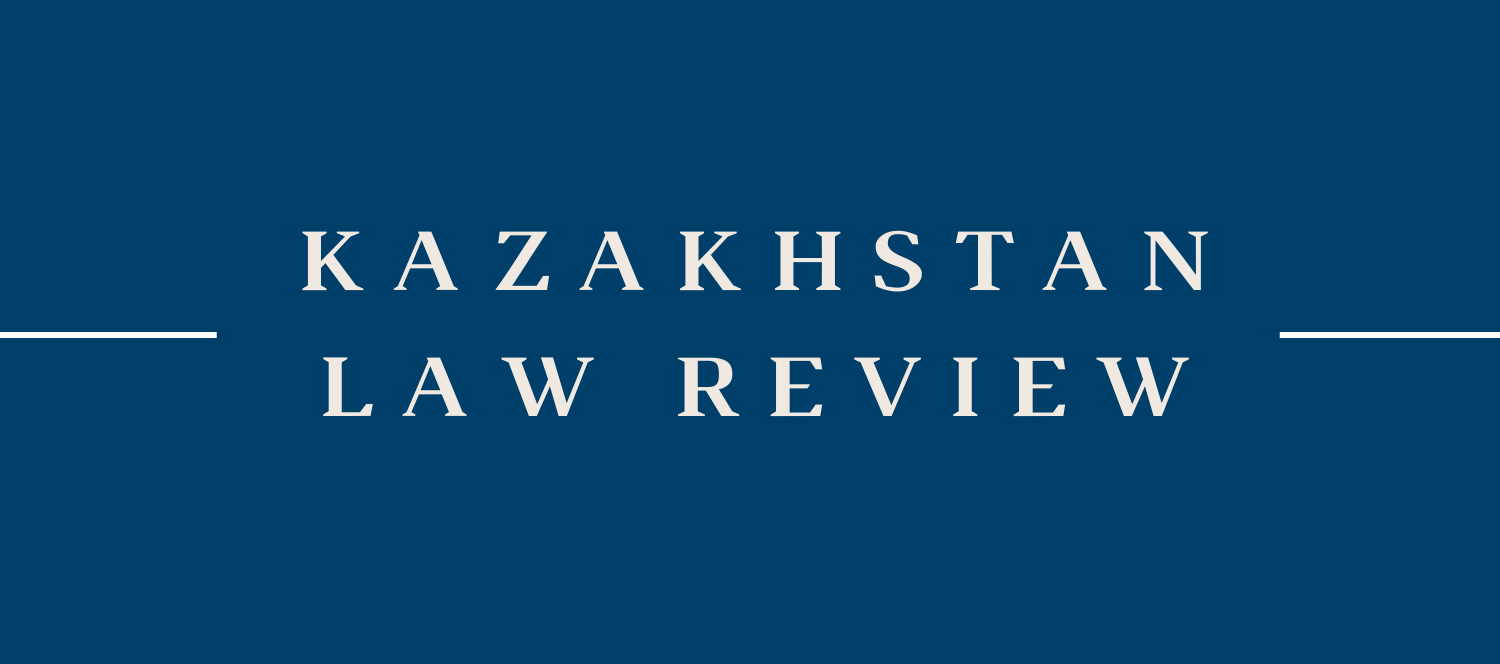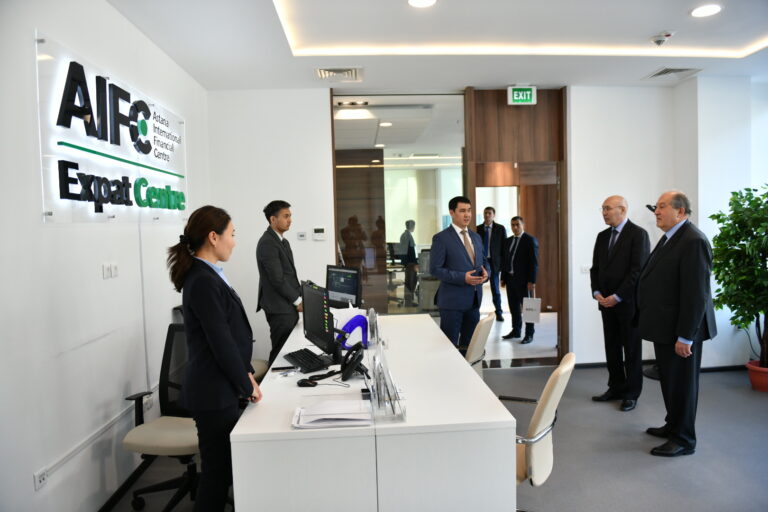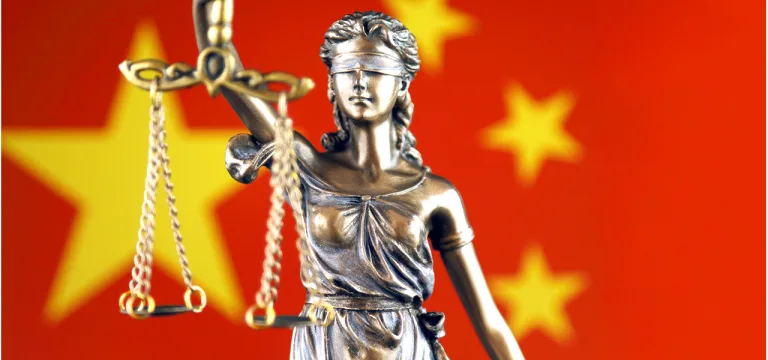General Legal Counsel
Aurora Minerals Group LLP
Nariman Omarov
It is difficult to remember the times when the Russian Federation (RF) lived without international sanctions. One of the significant sanctions phenomena of the new time was the Magnitsky Act, which the United States adopted in response to human rights violations by RF enforcement officers.
Since 2014, due to the sharp aggravation of political relations between RF and Ukraine, the number of sanctions against the RF has increased significantly. Accordingly, since February 2022, Russia has confidently taken the first place in the world in terms of international sanctions imposed on the one country.
First of all, we are talking about international sanctions of a political nature, which countries or international organizations apply in order to force sanctioned countries and their citizens to refuse to perform certain actions or deprive them of the opportunity to carry out illegal actions.
It’s Natural that, taking into account the current regional trade, Kazakhstan is directly affected by sanctions against the Russian Federation.
At the same time, in conditions of relative indifference to the ongoing events in Ukraine on the part of international organizations, the main champions in terms of sanctions were the countries of the European Union, the United States and Great Britain. Their sanctions are the most sensitive for the Russian Federation and visible on the world stage.
USA
In the United States, the main legislative framework for sanctions is the Countering America’s Adversaries Through Sanctions Act (CAATSA) of August 2, 2017, and the Federal Act on Freedom of Ukraine of December 18, 2014.
U.S. sanctions management is primarily carried out by the Office of foreign assets Control, (OFAC) — Office of Foreign Assets Control (OFAC), US Treasury. Other U.S. government agencies also pass sanctions-related acts from time to time.
OFAC manages financial sanctions. The main mission of OFAC is to administer and enforce economic sanctions against foreign states and regimes, terrorists and terrorist organizations, proliferators of weapons of mass destruction, drug smuggling, and other targets of US sanctions. OFAC operates within the emergency powers of the President of the United States and relevant regulatory legal acts, establishes prohibitions and freezes (freezes) assets that fall within the jurisdiction of the United States.
| OFAC conducts two main types of sanctions | |
| Specially Designated Nationals And Blocked Persons List (SDN) List of specially identified and blocked persons. The SDN includes individuals who have been directly sanctioned by US authorities and have their assets frozen within US jurisdiction. Being on this list is the most severe type of sanctions and has consequences for the person included in it in the form of freezing all assets available to the United States and practically complete isolation in economic transactions in relations with entities that participate in open international trade. | Non — SDN sanctions Any sanctions other than SDN . They are also called sectoral sanctions. Such sanctions are not aimed at blocking and freezing assets. As a general rule, non- SDN sanctions prohibit persons within the jurisdiction of the United States from carrying out certain transactions in certain areas of the economy, or from entering into a transaction with certain persons. SDN Violation sanctions entail liability for violators in the form of fines. The OFAC website provides numerous examples of settlements of violations in the form of companies paying significant fines to the United States. |
European Union
The main sanctions body of the European Union (EU) is the European Council. The sanctions process is administered by the Directorate-General Financial Stability, financial services and capital markets union (FISMA).
In the European Unionthe following main regulatory legal act applies to the Russian Federation: Decision of the European Union No. 833/2014 dated 07/31/2014 Concerning restrictive measures in connection with Russia’s actions destabilizing the situation in Ukraine. This legislative act is constantly supplemented by decisions of the European Council. Large packages of amendments, as a rule, in the EU are named by the numbers of their adoption, respectively, currently the 8th package of EU sanctions is in force.
Great Britain
The UK sanctioning authority is the Financial Sanctions Enforcement Office, which is part of the Treasury. (English Office of Financial Sanctions Implementation ( OFSI ).
Here, the basic law governing sanctions against the Russian Federation is the Law of 2019 No. 855, the Law on Sanctions against Russia (in connection with the exit from the European Union).
Switzerland
Although it is not part of the European Union, but in terms of sanctions, it almost completely copies it. In Switzerland, all 8 packages of EU sanctions are in force.
Each of the US, EU and UK Authorizing Authorities listed are generally open to communications with suppliers and customers, including those from overseas. They can be contacted for clarification of certain information through their websites or by e-mail.
How to use knowledge about sanctions legislation ?
When working with counterparties, we must understand the conceptual difference between US and EU sanctions regulation.
European sanctions, like those of Great Britain, are of a territorial intra-European nature. And they are expressed in the form of bans on import, export or transit, on entering ports and conducting financial transactions. Most European, including British, sanctions in general can be called sectoral sanctions, that is, they are expressed in the form of prohibitions to carry out certain activities in certain sectors of their economy. In terms of subjectivity, the sanctions of the EU and the UK are aimed at prohibiting their citizens from taking certain actions in connection with the sanctions. It should be noted that in the eighth package of sanctions in the EU, an attempt was made to extend certain restrictions to persons who contribute to the circumvention of EU sanctions. However, the full criteria for determining such persons and specific sanctions are not yet clear, since the relevant legislative acts have not been published. Also in the EU and the UK there are certain sanctions of a personal nature, expressed in the ban on the entry of certain persons and the freezing of their assets in the territory of the respective countries.
US sanctions are extraterritorial in nature due to the way US legislators and courts understand the limits of US jurisdiction. In other words, this means that a US court can consider any company or citizen of any country a violator of sanctions laws or a criminal offender if they violate US law wherever they are in the world.
When interacting with persons subject to sanctions from the point of view of the United States, so-called secondary sanctions may arise. Secondary sanctions can simply be called such sanctions that are imposed for violation of previously established US sectoral sanctions, or for interaction with persons included in the SDN list. The European Union and the UK, as noted above, do not penalize violations of their sanctions outside their territorial jurisdiction.
Criminal penalties for violating sanctions
The European Union is currently considering common approaches to the application of criminal penalties for sanctions violations.
In the UK, UK citizens and companies can be subject to criminal penalties for violating sanctions. Penalties for violating sanctions range from fines to imprisonment for up to 7 years.
Due to the risk of criminal penalties for citizens of the US, the EU and the UK, as well as countries that are members of the British Commonwealth, companies in Kazakhstan that enter into relationships with partners at risk and have citizens of the above countries in their governing bodies , it is necessary to protect these citizens from criminal prosecution. The general understanding is that citizens of the US, EU and UK should refrain from making decisions in the performance of their duties that violate the sanctions imposed by their states.
One of the recommendations of some foreign legal consultants is to sign a Recusal Notice ( “ Recusal note «). As a rule, a notice of refusal in the countries of the Anglo-American legal system is signed if an official or governing body has a conflict of interest when making a decision. In the case of signing such a notice, an official in the company does not even participate in the discussions of a particular issue.
But within the framework of Kazakhstani legal practice, such a notification looks voidable, since neither legislative nor corporate practice has such a form of refusal yet. As a result, if companies often face refusals of their independent directors or members of the executive body to participate in the discussion of issues, then they have the right to raise the issue of replacing such employees.
Accordingly, in Kazakhstan, foreign citizens — officials, as one of the options for avoiding criminal liability in their homeland, could vote against or abstain from voting if they vote on a risky sanctions issue within the powers of collegial bodies. If foreign citizens act as the sole management body of the Company, then they could delegate their powers.
However, in general, the proposed options do not guarantee the protection of foreigners from criminal prosecution or other unpleasant consequences in their home country, since they have not been tested in practice.
We have to not exclude a scenario in which the very fact of being a member of the bodies of a legal entity that violates EU sanctions may be the basis for criminal prosecution.
Kazakhstan
Kazakhstan is connected with the Russian Federation by the longest land border. That is why it is very difficult for an entrepreneur to completely abandon trade or cooperation with Russian partners. At the same time, the scope of sanctions against the Russian Federation, its citizens and companies is quite unpredictable.
Also, when interacting with the Russian Federation, one should take into account the risks that your goods may end up in regions for which special sanctions are imposed. If you have plans to develop your business on an international scale, then you should strictly control that your goods do not end up in regions such as Crimea and Donbas and Luhansk and other annexed regions.
From the other hand, the Government of Kazakhstan can take certain actions aimed at complying with international sanctions. These actions, can be expressed in the form of action by executive bodies, without issuing any regulatory legal act. In this regard, it is important to follow the news of Kazakhstan.
A logical question arises, how can Kazakh entrepreneurs protect themselves from sanctions risks when interacting with Russian partners, who at any time in the future may fall under US, European Union or UK sanctions?
How to reduce risks
First of all, we need to pay attention to the sanctions check or the so-called sanctions compliance . To do this, it is not necessary to buy expensive sanctions check services or the services of foreign consultants.
- European Union sanctions can be checked at https://www.sanctionsmap.eu .
- UK sanctions at https://sanctionssearchapp.ofsi.hmtreasury.gov.uk/ ,
- US sanctions, respectively, on the website https://sanctionssearch.ofac.treas.gov/ .
Another way to reduce sanctions risks is to include so — called sanctions clause in contracts. As a rule, the sanctions clause includes an assurance by the parties that none of the parties, their affiliates, participants or shareholders, beneficiaries are not under any international sanctions at the date of conclusion of the agreement. In addition, the sanctions clause establishes mechanisms for terminating the contract, withdrawing a party from a joint venture, and other mechanisms for terminating cooperation between the parties in the event that sanctions are imposed against one of the parties that will make further cooperation with it impossible.
To verify the assurances of a party at risk of sanctions, lawyers should examine the corporate structure of the counterparty. It is necessary to check for sanctions not only the partner himself, but also the persons controlling him, as well as their ultimate beneficiaries.
For a more complete understanding of the risks arising from transactions, lawyers should request the entire supply chain associated with the execution of the transaction. In particular, transshipment ports or one of the transport links may be blocked by sanctions, or insurance companies will not be able to provide insurance coverage due to sanctions.
Voluntary sanctions restrictions
When planning long-term international cooperation, the factor of voluntary compliance or even voluntary imposition of sanctions by individual foreign companies should be taken into account.
This can be expressed in the requirement by foreign partners to provide an end user certificate, control on their part of the level of sales of certain goods, as well as the requirement to exclude citizens of the RF from the management bodies, members or shareholders of the company, or a ban on providing any information about a product, services or technologies to citizens of sub-sanctioned countries.
Banks, logistics companies and other important links in the supply chain may refuse to cooperate without justifying the reasons only on the basis of suspicion that they are involved in a sub-sanctioned transaction.
Summary
In doing legal expertise of transactions with Russian partners, Kazakh lawyers need to proceed not only from the legal principles of the material and conflict laws of Kazakhstan, but in general, they should examine the context in which a particular transaction is concluded.
Your broad outlook, curiosity and ability to understand cross-sectoral issues related to sanctions become your important value.
You have to not only interact with lawyers and the legal environment, but also with all participants in the transaction and stakeholders in your organization or the relevant customer.
It is necessary to constantly read the news that affects the subject of your transaction, as well as follow the statements and actions of the Government of Kazakhstan.
Читайте также:
LAWASIA’S ROLE IN RELATION TO HUMAN RIGHTS AND THE RULE OF LAW
Всегда ваш, KLR




